Cerridwen’s Menopause Medicine Wheel – Staying Juicy
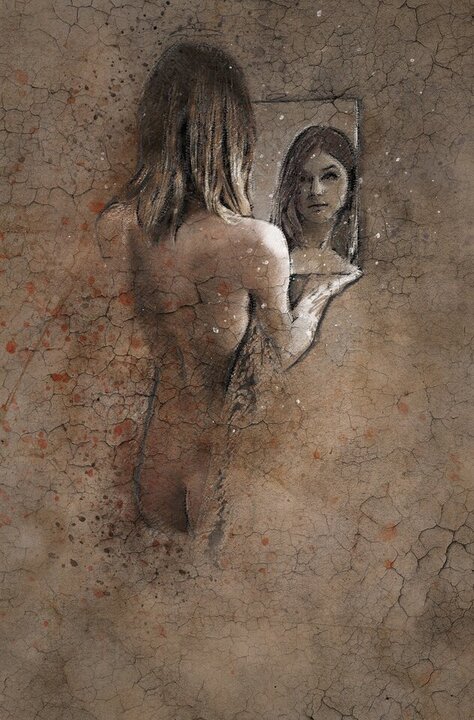
Image by JL G from Pixabay
Staying Juicy
The midlife woman looks in the mirror. She sees how her face is changing. Wrinkles are forming around her eyes and her skin is sagging a little. Her hairline is white where her dyed hair has regrown at the roots and as she looks down at her body she notices extra weight around the middle. She remembers when she was younger how her youthful appearance exuded sexuality, making her feel amazing. Now she hates her body. She wonders if her partner will still fancy her changing appearance as she ages and still find her sexy!
It’s not easy now her libido feels so flat and she would rather go to bed with a cup of tea and a good book than have sex. It doesn’t help having a dry vagina and feeling uncomfortable during intercourse. It puts her off having sex. As well as all this she feels tired from the lack of sleep and night sweats . This is all something she can’t even talk about to her friends and it’s affecting her life and relationship with her partner.
Cerridwen: Goddess of transformation as guide
Cerridwen watches over her with a gentle hand on her shoulder, guiding her journey. As Goddess of transformation and change she knows that during this powerful rite of passage we call the menopause, a woman’s body changes and has to adjust to being older along with all the gifts of wisdom and eldership. In the youth culture that we live in now, we are conditioned to not see ourselves as sexy as we age. Our culture dismisses older women, denying the possibility they can be beautiful and have a great sex life as well. Cerridwen, as Swynwraig, knows the herbs and supplements that can help the woman with sexual midlife struggles and also the medicines that can give her partner a bit of va voom too. In the Welsh myth, Cerridwen is wife to Tegid Foel so she knows about relationships and how midlife challenges can sometimes change them. She knows that men can struggle a bit sexually too as they age and often struggle with similar doubts about themselves.
Sexual health in midlife women
As a Medical Herbalist and a postmenopausal woman, I work primarily with women going through menopause and with other hormonal problems. Many women come to me with issues about dryness, loss of libido and other aspects of menopause that can affect sexual relationships and general wellbeing. I work with countless groups of women in menopausal circles and whilst many women are able to eagerly share experiences of hot flushes, night sweats and anxiety, it’s a lot harder for women to talk about and share with others some of the aspects of menopause that affect sexual health and well being . According to one review, the reported rates of sexual problems in postmenopausal women are between 68 and 86.5 percent.
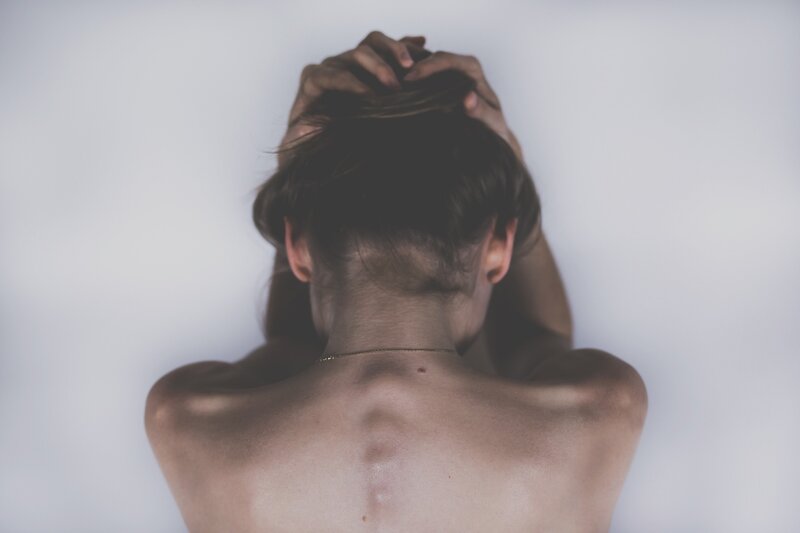
Intimate dryness
Vaginal dryness or vaginal atrophy can be a massive problem for many menopausal women. During menopause oestrogen levels naturally drop, vaginal tissues become thinner and more easily irritated resulting in uncomfortable or painful sex which can cause itching and an increase in infections such as thrush. Vaginal dryness occurs in women of all ages, but it becomes much more common after menopause. It’s estimated that the problem affects about half of postmenopausal women.
Symptoms of vaginal dryness include: feeling sore or itchy in and around the vagina, feeling pain or discomfort during sex, needing to wee more often than usual and an increased frequency of urinary tract infections (UTIs).
What causes vaginal dryness?
Before the menopause, the skin and tissues around the vagina are kept supple and moist by fluids and mucus. These are made by glands at the neck of the womb and oestrogen affects these glands. Oestrogen also affects the tissues in and around the vagina, causing the lining of the vagina to be thicker and more elastic. Oestrogen stimulates the cells that line the vagina to produce glycogen. Glycogen is a compound which encourages the presence of helpful bacteria which protect the vagina from infections. After the menopause, the lack of oestrogen leads to thinning of the tissues around the vagina and a reduction in the number of glands that make mucus. Women may also lose some fatty tissue from around the genital area. This may make the area also look slightly different to how it was before the menopause. Hormonal changes that occur during the menopause can make the vagina slightly shorter, less elastic and drier. These changes may also affect the cervix and bladder, taking months or years to develop after the menopause, and vary from woman to woman.
Vaginal atrophy can cause pain and discomfort during sex. This may occur because the vagina is drier and less likely to become lubricated during sex compared with how it was before the menopause. Also, the skin around the vagina is slightly thinner and this can make the problem worse.
Red flag: postmenopausal vaginal bleeding, pain and bleeding after intercourse can also be an indicator of some serious medical conditions so it’s wise to consult with a doctor or other health care practitioner to get a diagnosis.
Loss of Libido (or sex drive)
Many women often notice changes in libido throughout the menopausal transition, which can initially be an increase in sex drive, which then progresses to a reduced libido.
Decreased oestrogen levels can result in reduced blood flow to the vagina. Along with thinning tissue this can make the vagina and vulva become less sensitive to sexual stimulation. As a result, a woman may not enjoy sex as much and may have difficulty achieving orgasm. Sex may be uncomfortable or even painful. Other factors affecting libido can include night sweats, hot flushes, mood changes and anxiety as well as the stress many women experience in dealing with day-to-day life as well as societal challenges and attitudes towards ageing.
According to an article published in the Journal of Women’s Health, women who have more significant side effects associated with menopause are more likely to report lower libido levels.
Support
Working with the challenges of low libido and intimate dryness can be complex and a holistic approach is needed to be really effective. Support can be via herbal medicine and natural approaches but sometimes orthodox medicine can be of value too and the use of lubricants and hormonal pessaries may help. What matters most is that women have a choice and support is available.
For the sake of the article I will mention only natural approaches. Whilst there are some great herbs that can be used, one of my favourites is Shatavari.
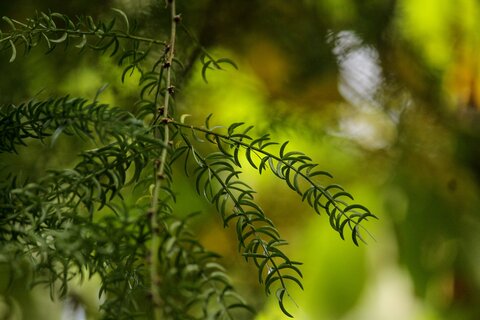
Shatavari – Asparagus racemosa
Shatavari means “She who possesses a hundred husbands”. It is considered both a general tonic and a female reproductive tonic implying its ability to increase fertility and vitality. In Ayurveda, this amazing herb is known as the “Queen of herbs”, because it promotes love and devotion.
Shatavari works as an aphrodisiac for women by working with all the symptoms of women’s sexual health, through all the changes of a woman’s life, bringing them into balance. Research shows that Shatavari increases blood flow to the female genital area, enhancing sexual sensation, sensitivity and increasing vaginal lubrication. It is known to have a hormone-balancing effect, making it useful for women who experience loss of libido as a side effect of the menopause.
In addition to Shatavari, the recipe below also uses Maca which is derived from a root or tuber from Peru. It is traditionally used to help reduce menopausal symptoms as well as improving sexual function and increasing libido in both men and women.
Vitality (Love) Balls
These very nourishing and great tasting balls are superb for supporting the adrenal glands, nourishing the nervous system and the immune system. They can help to treat anxiety, lethargy, depression, help improve energy levels, concentration and can add a bit of sparkle to your love life too.
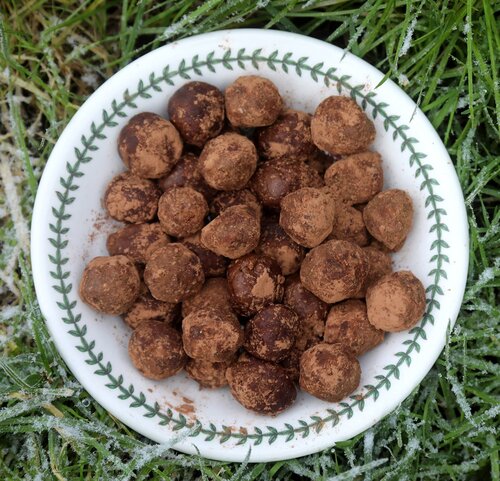
4 tablespoons of gelatinised maca powder
4 tablespoons of Ashwagandha /shatavari powder
4 tablespoon of Cacao powder
4 tablespoon of creamed coconut
½ small jar of almond or cashew nut butter
3-4 tablespoons of melted coconut oil
2 tablespoons of dried nettle seeds (optional)
1 teaspoon of dried ginger
½ teaspoon of ground cardamom
1 teaspoon of cinnamon powder
Few teaspoons of honey or maple syrup to sweeten
2-3 dried dates to add some moisture
Place in a blender and mix. The consistency needs to be one that is held together when rolled into a ball.
Roll into balls of about 1 inch diameter, roll in cacao powder till covered and place in the fridge until solid.
Eat 2-4 balls daily
Edwina Hodkinson BSc(Hons) MNIMH
Medical Herbalist
Member of the National Institute of Medical Herbalists
Bury, Lancashire, UK
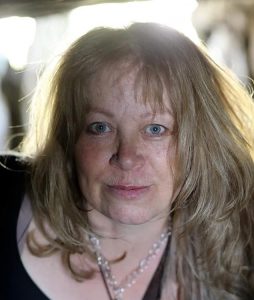
Edwina Hodkinson. BSc (Hons) MNIMH – Medical Herbalist and second spiral Priestess of Cerridwen
I have been a medical herbalist for 12 years, having graduated with a first-class degree in Herbal Medicine at Central Lancashire University. I work as a consulting medical herbalist in private practice in Bolton or via zoom, specialising in women’s health as well as working with community groups to help reconnect them to nature and the medicines growing around us. I also facilitate Wise Woman Rising workshops which help women to reconnect to the wise knowledge of menopause. I have a deep love for our native wild medicines and like to work with them as much as possible, which includes teaching local people about local herbs in a way that helps them reconnect to the world around them in a deeper way.
I have a background in nursing as well as having been a complementary therapist for over 25 years specialising in cancer care and working with the very sick. I am a forager, Clinical Reflexologist for 26 years, aromatherapist, Shamanic practitioner and Breath work coach.
websites: edwinahodkinsonherbalist.co.uk and weedsandwildmedicine.co.uk
Images by Edwina, unless otherwise credited
Medical Disclaimer
The Herbal Allies are shown here as part of a larger pharmacopoeia of herbs typically used by herbalists to support women during the menopausal transition and beyond and will be explored more in further articles. They are not prescriptive in any way, nor is it suggested you use them for particular issues and menopausal symptoms. Before using any herbs it’s best to consult with a Medical Herbalist or suitably qualified practitioner as not all herbs are suitable for all women and may interact with medications.